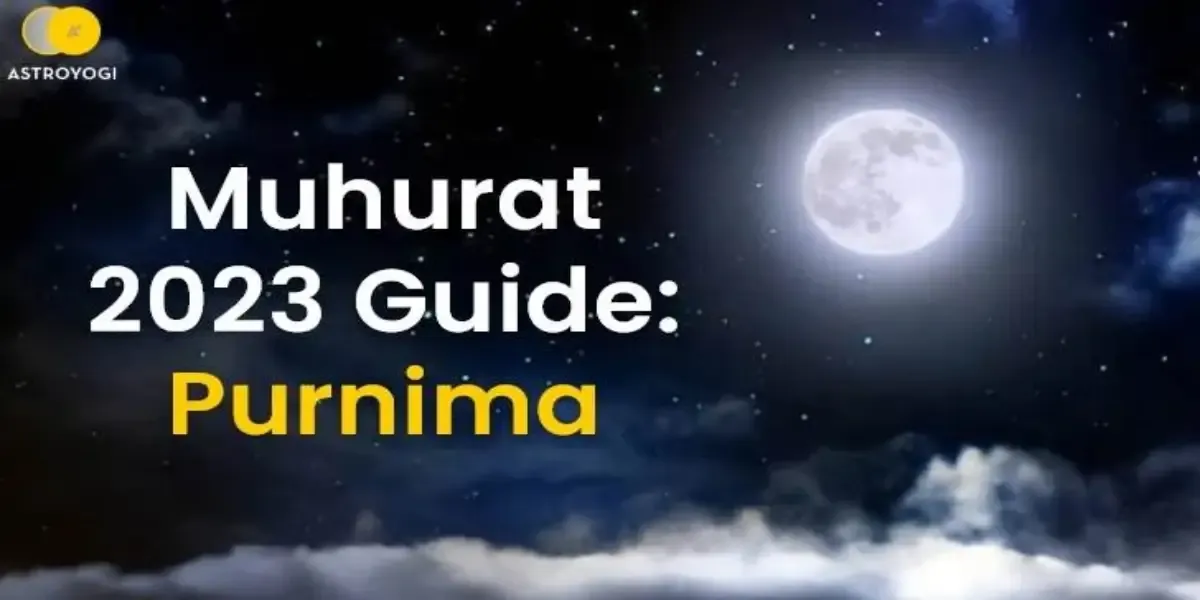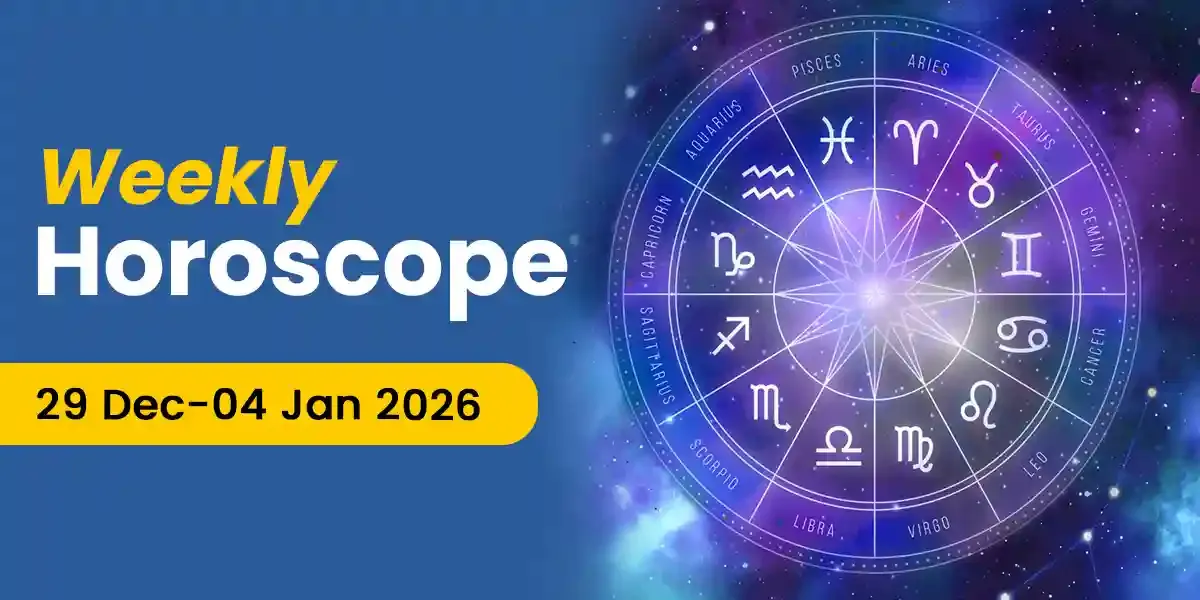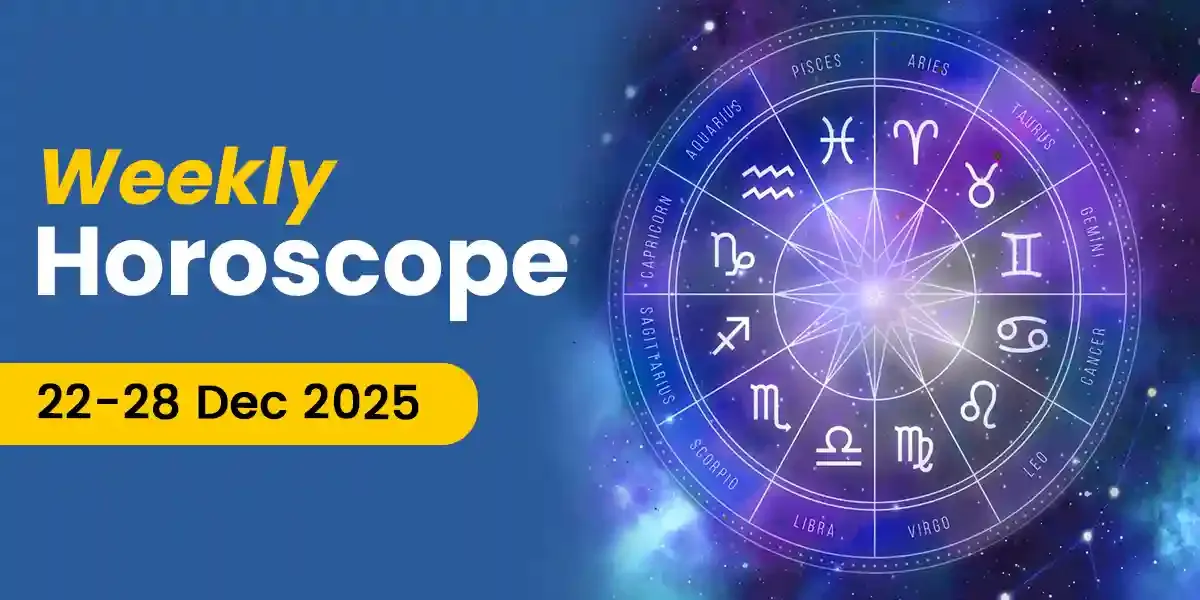
Purnima, the bright Full Moon night, holds special reverence in Hinduism! It is considered to be extremely important and relevant among Hindu devotees. Curious to find out more? Get amazing insights into the significance of Purnima and the Purnima calendar for 2023 right here.
What comes to mind when you look at the full Moon? Do you perhaps think in terms of religion, poetry, romance, or science? There are many cultural, religious, historical, and scientific stories associated with the Moon in different countries. Since the dawn of human history, the Moon has served as a "cultural mirror" to our beliefs, understanding, and ways of seeing. Throughout history, the Moon has been interpreted as a god, a planet, a timekeeper, and a calendar. It’s no surprise; the full Moon has a special place in everyone’s hearts. However, a full Moon night or Purnima (also Poornima) has a significant place in Hinduism. Purnima is revered by Hindu devotees as a holy day or an opportunity to perform significant religious rites.
Given how important Purnima is to Hindu culture, it is always advisable to be aware of the Muhurat (or auspicious time) of Purnima in 2023.
Purnima is especially considered an auspicious day in Hinduism. Not just in India, the full Moon is considered an important and wonderful occasion in many cultures across the world. No wonder it’s an important event for many. According to Hindu beliefs, full Moon days in India have enormous religious and spiritual significance and are frequently considered meaningful.
Do give this a quick read 👉 Horoscope 2023 | Numerology 2023 | Tarot 2023
Purnima: Everything You Need to Know
What is Purnima in Hinduism?
The Sanskrit word Purnima, meaning the day or night of a full Moon, is when the Moon is fully illuminated in the sky. According to the Hindu calendar, every month can be divided into two equal parts. There are thirty Tithis (dates) in every month, and the month is divided into two equal parts of fifteen days based on the phases of the Moon. The first fifteen days are known as the Shukla Paksha, which is the waxing phase of the Moon. On the other hand, the second slot of the last fifteen days is known as the Krishna Paksha, which is the waning phase of the Moon. In each Paksha, a particular date is Purnima or Amavasya
Purnima marks the transition from Shukla Paksha, or the bright two weeks before the full Moon, to Krishna Paksha, or the dark two weeks after it. The last day of Shukla Paksha is Purnima or full Moon night. Purnima Tithi marks the start of the second slot of the month's final fifteen days, known as Krishna Paksha. On the last day of the Krishna Paksha falls the Amavasya (no moon night).
Why is Purnima Considered Auspicious?
- The significance of Purnima is best understood in the context of this day's transition from darkness to illumination, brightness, and light.
- The Moon's luminous fullness stands for plenitude, abundance, and abundant blessings. As a result, the day of the full Moon is regarded as a very fortunate time to start and complete important tasks.
- The Moon's orbit around the Sun comes to an end on this day, symbolically closing a chapter in one's life. It is thought to be connected to birth, rebirth, and the soul's manifestation.
- Although Poornima occurs every month, the most auspicious are Kartik Purnima, Magh Purnima, Sharad Purnima, Vat Purnima, Guru Purnima, and Buddha Purnima. Some notable Purnima festivals or occasions include Holi, Hanuman Jayanti, Buddha Purnima, Dattatreya Jayanti, and others.
- When a grand occasion like a wedding, the birth of a child, the purchase of a new house, etc., happens in a family or community, many people thank God by performing Shree Satyanarayan Puja on this day.
Purnima Muhurat in 2023: What Dates and Times Should You Be Aware Of?
The Purnima date has its own significance every month. For Hindus, the day of Purnima is a spiritually significant and holy occasion for worship, prayer, and fasting. However, do you know how many Purnimas there are in a year? It might surprise you to learn that there are typically twelve full Moon days. However, if there is a Blue Moon or two full Moons in one month, there can be thirteen Purnimas in a year. Every full Moon is associated with a festival or auspicious fast.
Now that you know what Purnima is, let's look at the Purnima dates in 2023 and their Muhurat or auspicious time. To make it easier, Astroyogi has compiled a comprehensive list of Purnima 2023 dates and times.
You may also like reading 👉 Looking for Family Life Guidance for 2023? These Predictions Can Help!
Paush Purnima - 6th January 2023 (Friday)
- Starts- 02:14 AM, 6th January 2023
- Ends- 04:37 AM, 7th January 2023
Magha Purnima - 5th February 2023 (Sunday)
- Starts - 09:29 PM, 4th February 2023
- Ends - 11:58 PM, 5th February 2023
Phalguna Purnima - 7th March 2023 (Tuesday)
- Starts - 04:17 PM, 6th March 2023
- Ends - 06:09 PM, 7th March 2023
Chaitra Purnima - 6th April 2023 (Thursday)
(Chaitra Purnima Vrat is on 5th April 2023 - Wednesday)
- Starts - 09:19 AM, 5th April 2023
- Ends - 10:04 AM, 6th April 2023
Vaisakha Purnima - 5th May 2023 (Friday)
- Starts - 11:44 PM, 4th May 2023
- Ends - 11:03 PM, 5th May 2023
Jyestha Purnima - 4th June 2023 (Sunday)
(Jyestha Purnima Vrat is on 3rd June 2023 - Saturday)
- Starts - 11:16 AM, 3rd June 2023
- Ends - 09:11 AM, 4th June 2023
Asadha Purnima - 3rd July 2023 (Monday)
- Starts - 03:51 AM, 1st August 2023
- Ends - 12:01 AM, 2nd August 2023
Shravana Adhika Purnima - 1st August 2023 (Tuesday)
- Starts - 03:51 AM, 1st August 2023
- Ends - 12:01 AM, 2nd August 2023
Shravana Purnima - 31st August 2023 (Thursday)
(Shravana Purnima Vrat is on 30th August 2023 - Wednesday)
- Starts - 03:51 AM, 30th August 2023
- Ends - 12:01 AM, 31st August 2023
Bhadrapada Purnima - 29th September 2023 (Friday)
- Starts - 06:49 PM, 28th September 2023
- Ends - 03:26 PM, 29th September 2023
Ashwina Purnima - 28th October 2023 (Saturday)
- Starts - 04:17 AM, 28th October 2023
- Ends - 01:53 AM, 29th October 2023
Kartik Purnima - 27th November 2023 (Monday)
- Starts - 03:53 PM, 26th November 2023
- Ends - 02:45 PM, 27th November 2023
Margashirsha Purnima - 26th December 2023 (Tuesday)
- Starts - 05:46 AM, 26th December 2023
- Ends - 06:02 AM, 27th December 2023
The following are some of the religious activities that are carried out on Purnima.
In Hindu culture and traditions, the Purnima Vrat or fasting on the day of the full Moon, has great significance. This fast is kept by many devotees in order to obtain Lord Vishnu's blessings. It is thought that anyone who observes this fast will become more stable and balanced, both mentally and physically. Purnima Vrat or fast is observed on Purnima or one day before Purnima, i.e., Chaturdashi. This is determined by the start time of the Purnima Tithi on the previous day.
Purnima Vrat, or fasting, begins at sunrise and ends when the full Moon is seen in the evening. On this day, the devotee must fast and refrain from eating pulses, cereals, or salt. To fulfill one's wishes, one prays to the Moon with complete devotion. A devotee can achieve Moksha if they observe the fast with full faith and sincerity.
As mentioned earlier, Purnima marks the end of each Hindu month. Usually, a significant and auspicious Hindu festival, occasion, or ritual is celebrated on this sacred day.
In addition, many devotees also perform special Purnima Puja. This commemorates a new beginning for a person. Many people associate the full Moon with new beginnings and opportunities to make positive changes in their lives.
On Purnima, many people not only observe a fast but also offer prayers to numerous divine Gods and Goddesses. People worship Goddess Lakshmi and the various manifestations of Lord Vishnu. Moreover, Lord Shiva is also revered by some devotees. There is a tradition of performing a Puja in homes for Lord Satyanarayan, which is another form and name of Lord Vishnu. This Puja can help devotees maximize their efforts and atone for their past sins. It has the power to bring happiness and prosperity into a person's life. Doing Lord Satyanarayan's Puja is one way to obtain Lord Vishnu's blessings.
The Bhavishya Purana states that taking a holy bath at a revered religious site on the day of the full Moon can eliminate all of your sins. If visiting a pilgrimage site is not an option, you can take a bath at home by adding Gangajal or Ganges water into the bathing water.
On this day, some people chant the Maha Mrityunjaya mantra, which is widely believed to help you achieve all of your life's aspirations and dreams. It provides devotees with solutions to their problems and promotes a healthy spirit, soul, body, and mind.
Purnima thus holds a special place in the lives of Hindu devotees.
Our in-house team of writers comprises of vibrant, like-minded, and curious souls who are passionate about helping people find joy and motivation through the magic of words. Our writers are keen on using their skills to make the study of divination sciences a guiding tool in people's lives. They hold expertise in writing on a myriad of topics related to Indian Astrology, Spirituality, Planetary Movements, Vastu Shastra, Numerology, and Tarot among several others. The Astroyogi team aims to write articles that can help the readers lead a life of peace and tranquility whilst enjoying the many ups and downs of life!




































